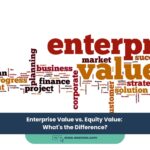A Guide to Due Diligence on Management and Key Employees
In any major business transaction—be it a merger, acquisition, or a significant private equity investment—the financial statements, contracts, and assets are subjected to intense scrutiny. But savvy investors know that the most valuable asset, and potentially the biggest liability, doesn’t appear on any balance sheet: the people. The quality, stability, and integrity of the management team and key employees are often the single most important determinant of a company’s future success.
Due diligence on management, often called “human capital due diligence,” is the investigative process of assessing the leadership and key personnel of a target company. It goes far beyond reviewing CVs. It is a deep dive into the capabilities, character, and culture of the team you are investing in. A brilliant business model can be run into the ground by a dysfunctional management team, while a strong team can navigate a mediocre business to success.
This guide explores the critical components of conducting due diligence on management and key employees. We will detail what investors look for, the major red flags to watch out for, and why this human-centric investigation is a non-negotiable part of any comprehensive due diligence process.
Key Takeaways
- You’re Investing in People: The quality of the management team is a primary driver of a company’s value and future performance.
- Identify “Key-Person Risk”: A critical goal is to determine if the business is overly dependent on the founder or a few key individuals whose departure could cripple the company.
- Culture is a Critical Asset: Assessing the cultural fit between the target company and the acquirer is essential for a successful post-merger integration. Culture clashes are a leading cause of deal failure.
- Integrity is Non-Negotiable: The process includes background checks to verify credentials and uncover any potential red flags regarding the character and integrity of key leaders.
- It’s About the Future, Not Just the Past: The assessment focuses on whether the current team has the skills and vision to lead the company through its next phase of growth.
Why People are the Ultimate Asset (and Risk)
Financial models and strategic plans are ultimately just documents; it’s the management team that has to execute them. A due diligence process that ignores the human element is fundamentally flawed. A thorough investigation of the management team helps an investor to:
- Validate the Growth Story: Does the team have the experience and track record to actually achieve the ambitious forecasts presented in the business plan?
- Uncover Hidden Liabilities: A toxic culture, a high rate of employee turnover, or a key executive planning to leave are all significant liabilities that won’t show up in the financials.
- Plan for Integration: Understanding the culture and key players is essential for planning a smooth post-acquisition integration and retaining top talent.
- Price the Deal Correctly: Significant key-person risk or a weak management team can be grounds for a lower valuation or the inclusion of protective clauses like an earn-out.
A great strategy in the hands of a mediocre team will fail. A mediocre strategy in the hands of a great team can be adapted and turned into a success. Due diligence helps you figure out which you are buying.
The Core Components of Management Due Diligence
A comprehensive assessment of a company’s human capital involves several key areas of investigation.
1. Leadership Team Assessment
This is a deep dive into the capabilities of the C-suite and senior management.
- Experience and Track Record: A review of each executive’s past roles and accomplishments. Have they successfully navigated similar challenges or growth stages in the past?
- Strategic Vision: Through structured interviews, the due diligence team assesses the leadership’s understanding of the market, their competitive vision, and the clarity of their strategic plan.
- Team Dynamics: How well does the leadership team work together? Are they aligned on the company’s goals? Interviews and reference checks can reveal a lot about the cohesiveness of the team.
2. Identifying and Quantifying Key-Person Risk
This is one of the most critical parts of the process, especially in founder-led or family businesses.
- Dependency Mapping: Identifying which individuals hold critical knowledge, skills, or customer relationships. What would happen if the head of R&D or the top salesperson resigned tomorrow?
- Succession Planning: Does the company have a credible succession plan for key roles? Is there a strong second tier of management ready to step up?
- Retention Analysis: Reviewing compensation and incentive plans to assess the likelihood that key employees will stay with the company after the transaction.
3. Background and Integrity Checks
This is the verification stage, designed to confirm credentials and uncover any potential character flaws.
- Credential Verification: Confirming educational qualifications and past employment history.
- Reputational Due Diligence: Conducting discreet inquiries with former colleagues, clients, and industry contacts to build a picture of an executive’s reputation and character.
- Public Records Search: Searching for any red flags in public records, such as past litigation, bankruptcies, or criminal records.
4. Cultural Due Diligence
A clash of cultures is a primary reason why mergers fail. This analysis assesses the “way things are done around here.”
- Assessing the Culture: Is the culture innovative and fast-paced or conservative and bureaucratic? How are decisions made? How is performance managed? This is often assessed through employee surveys and interviews.
- Compatibility Analysis: Evaluating the degree of cultural alignment between the target company and the acquirer. If the cultures are fundamentally different, the due diligence team must identify the risks and develop a plan for integration.
Integrating Human Capital Insights with Financial Strategy at EAS
At Excellence Accounting Services (EAS), we understand that a company’s value is driven by its people. Our due diligence and advisory services are designed to provide a holistic view of a business, integrating human capital insights with rigorous financial analysis.
- Integrated Due Diligence: While we focus on the financial and commercial aspects, our due diligence process is designed to uncover the financial implications of human capital risks, such as the cost of retention plans or the impact of high employee turnover.
- Strategic CFO Services: Our outsourced CFOs can help you analyze the financial side of your HR strategy, from designing effective incentive plans to modeling the costs and benefits of new hires.
- HR Consultancy Integration: We work seamlessly with specialist HR consultants and investigation firms, ensuring that their findings on management and culture are properly factored into the overall business valuation and deal structure.
Frequently Asked Questions (FAQs)
A standard background check is a historical verification of facts (e.g., criminal record, education). Management due diligence is a forward-looking, strategic assessment of a team’s capabilities, vision, and ability to execute a business plan.
Extreme key-person risk is often the biggest red flag. If the entire business revolves around the founder’s personal relationships and undocumented knowledge, and that founder plans to exit, the business may have very little transferable value.
It’s assessed through a combination of methods: reviewing internal documents (like mission statements and performance review criteria), analyzing employee turnover and absenteeism data, conducting confidential employee surveys, and interviewing a cross-section of staff at different levels.
It can have a significant impact. A strong, deep, and stable management team can lead to a higher valuation multiple, as it reduces the perceived risk of the investment. Conversely, high key-person risk or a weak leadership team can lead to a significant discount on the valuation.
This is a specialized field. It is often conducted by specialized HR consulting firms, executive search firms, or corporate investigation firms that have expertise in organizational psychology and executive assessment.
This is a sensitive process. Often, the due diligence is positioned as a “strategic review” or an “operational consulting project” to assess the business for future growth, without explicitly mentioning an M&A transaction until much later in the process.
An earn-out is a contractual provision where a portion of the purchase price is paid to the seller only if the business achieves certain performance targets *after* the sale. It’s often used to mitigate key-person risk. It incentivizes the seller/founder to stay on and ensure a smooth transition and the retention of key clients.
It is arguably even more important. In a joint venture, you are not taking full control; you are entering a long-term partnership. The due diligence must focus heavily on the compatibility of the two management teams and cultures, as they will have to work together closely for the venture to succeed.
This is a major integrity red flag. It calls into question not only that executive’s credibility but the overall culture of the company. It can be a reason to walk away from a deal, or at the very least, to require that executive’s removal as a condition of the transaction.
This is a core part of succession planning due diligence. It involves an objective assessment of the skills, experience, and leadership potential of the family members who are slated to take over, comparing them to what would be expected of a professional manager in a similar role.
Conclusion: Investing in Leadership
Ultimately, every business is a human enterprise. Financial statements show where a business has been, but its people will determine where it is going. A thorough due diligence process on management and key employees is an essential investment in understanding the true quality and sustainability of a business. It provides the critical insights needed to look beyond the spreadsheet and make an informed decision about the leadership team you are entrusting with your capital.
Are You Investing in a Team That Can Deliver?
Contact Excellence Accounting Services to learn how we integrate human capital insights into a comprehensive due diligence process.




